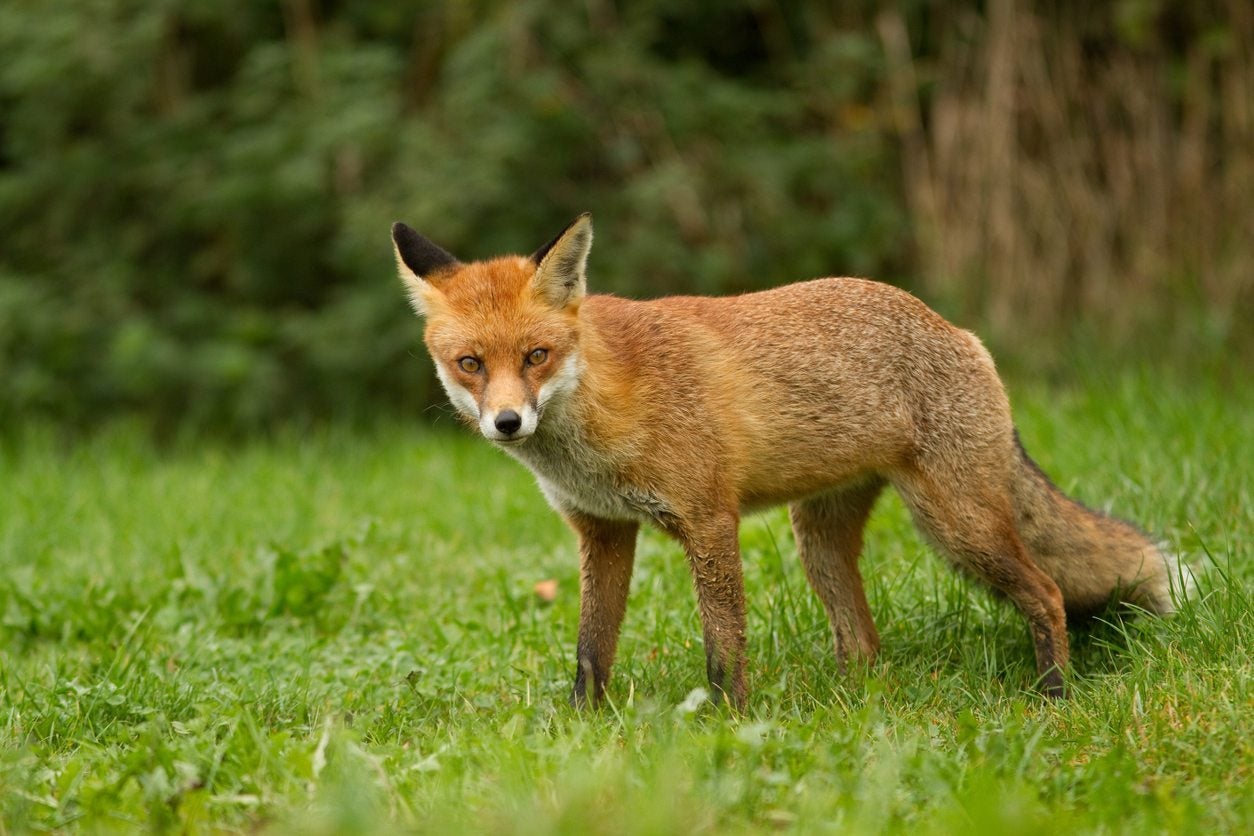Predator Urine In Gardens: Does Urine Deter Pests In The Garden

Of all garden pests, mammals are often the ones that can do the greatest damage in the shortest time. One strategy for warding off these animals is to use predator urine as a pest deterrent. Predator urine falls into the category of olfactory repellents, meaning they target the pest animal’s sense of smell. Coyote and fox urine are the most commonly used for smaller mammals and deer; bobcat, wolf, bear, and mountain lion urine are also available.
Does Urine Deter Pests?
Gardeners report mixed results with predator urine. Fox urine works best for repelling small mammals like rabbits, squirrels, and cats. Coyote urine and the urine of larger predators is a better choice for deer and other larger animals, and is also reported to work against woodchuck, raccoon, skunk, and smaller mammals. Predator urine in gardens is not a foolproof solution to pest problems. One common complaint is that herbivores may become habituated to scent repellents and return to the area. Switching out your repellent every three to four weeks can help. Another issue is that if an animal is hungry enough, it will be determined to reach your edible plants, and olfactory repellents including urine are unlikely to make a difference. Like other olfactory repellents, predator urine is a safer alternative compared with poisons. It is less expensive than setting up a fence or netting system, but it’s also less reliable than a strong physical barrier.
Using Urine for Pest Control
Knowing what animal is causing the damage will help you pick an effective control method. For example, deer are likely to be repelled by coyote urine but not fox urine. You can often tell what mammal is responsible based on the type of damage, what time of day or night it occurs, and which plants are targeted. Be aware that coyote urine may attract curious coyotes or dogs to the area. Reapply predator urine products after rains and every week or so, depending on the product. To increase their effectiveness, consider using multiple types of animal repellents simultaneously or combining a repellent with an exclusion method like fencing or netting.
Sign up for the Gardening Know How newsletter today and receive a free copy of our e-book "How to Grow Delicious Tomatoes".
Ilana Goldowitz Jimenez is a scientific and agricultural writer with a B.S. in Plant Sciences from Cornell University and a PhD in Chemical Biology and Infectious Disease from Harvard University.